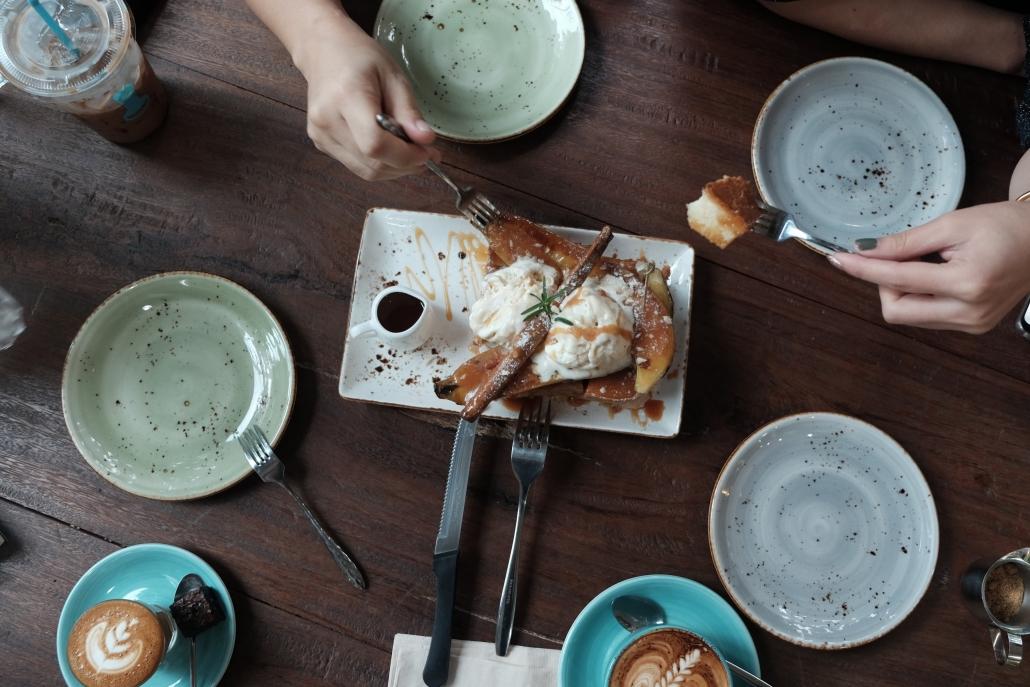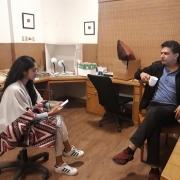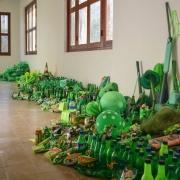Op-ed: The Problem With Our Restaurants
A mediocre meal with disposable cutlery at a casual Mexican eatery in Karachi made me realise how immensely unsustainable the Pakistani food & beverage industry is, so I decided to dig into the reasons why restaurants operate the way they do and the consequences it holds for our city. Here, 16 million people find themselves in the midst of a ‘garbage crisis’ where trash continues to pollute the city – making it one of the world’s least liveable cities (EIU, 2018). Although the team at GarbageCAN continues its efforts in cleaning up parts of the city, it’s no easy feat when there’s a lack of complete support and collaboration with the government. Karachi generates 13,000 tonnes of solid waste everyday and disposables from the food industry makes up a large portion of this. Especially after the rise in delivery apps like Foodpanda, that have given us the privilege of enjoying meals served in single-use plastic – right at our fingertips.
My first and most important question is, why do several restaurants and cafes serve their food and beverages in disposable cutlery if we’re dining in? Many new and so-called ‘hip’ places in the food scene boast that they’re ‘eco-friendly’ simply because they chose to use biodegradable cutlery made of paper, cardboard or bamboo as an alternative to plastic – which is great – but how necessary is it really? And is it just another greenwashing tactic? Regardless of what material it’s made of, it’s still going to be discarded and so eventually it will end up in a landfill. It may biodegrade depending on the material; paper takes 2-5 months, cardboard takes 3 months, but if anything is even coated in plastic, it will take years.
Moreover, the process of decomposition depends on various environmental conditions too. In order to work effectively, microorganisms that assist the biodegradation process need light, water, oxygen, and the right temperature. For example, even though food scraps are biodegradable, they are unable to break down in a landfill because the lack of oxygen will prevent bacteria, fungi and worms from working its magic. That means that if it isn’t disposed correctly, all the effort and money spent into getting better alternatives would have gone to waste, literally.

Photo by Lex Sirikiat on Unsplash
The science of biodegradation and compostability is so complicated in itself, so why not avoid all this tension altogether and simply serve us in reusable plates and glassware? I wonder if it’s because restaurant owners aren’t willing to invest additional funds in manpower and resources. But if there are chefs in the kitchen, helpers preparing the dishes and waiters serving them, would it be so problematic to hire one extra person that can wash the dishes? Maybe it’s the expense of increased water consumption. Though, if we’re talking about expenses, I do think using reusables make more economical sense, because it would save the direct expense of ordering a new supply of disposable cutlery every month, that can be more costly at times.
An example of a cafe that has set the benchmark for sustainability in Pakistan’s F&B scene is Coffee Wagera. Dedicated to serving the best coffee in town, Coffee Wagera reduces its waste through a few different ways, like discouraging takeaway paper cups by charging an extra Rs. 20 and providing a 10% discount if you bring your own takeaway mug. They also provide a 10% discount if you call in a residential pickup for recycling with GarbageCAN! They keep liquid sugar syrup to avoid the use of sugar sachets and stirrers, while serving their beverages without any plastic straws, which is a pretty big deal considering the fact that any drink we purchase automatically comes with a straw put inside. Why not ask customers first if they need one? Because let’s be honest, if we can have our hot drinks without a straw, why do we need one for iced drinks? Coffee Wagera also has a water dispenser where you can drink water for free without having to purchase a plastic bottle!
There are many local restaurants or ‘dhabhas’ that are naturally much better than others as they use reusables and give food waste to the needy instead of throwing it away, but one problem that will inherently remain for all eateries is of plastic water bottles. Even if you eat at a 5-star hotel in Pakistan, you will still get water in a plastic bottle. This is because tap water isn’t drinkable in Pakistan, so businesses obviously choose to make an extra profit from selling water bottles. As a resident of Hong Kong, this is something I wasn’t used to at all, because tap water is safe to drink there and a basic necessity, so it’s usually the first thing to be served at our tables, free of cost, in glasses. But, imagine if every restaurant had its own water dispenser like Coffee Wagera, to serve customers with hot or cold water upon request, which ideally shouldn’t be charged for, but can be as well – at least it’ll keep thousands of plastic bottles daily out of our landfills.
To conclude, no city or industry is perfect, each has its own problems, but in a developing country like Pakistan that already has so many challenges – why not work towards solving the important ones, one step at a time? Always use reusable cutlery for dine-in customers, not just for the environmental and economic benefit but also to provide a better dining experience. Stop assuming that we need straws for our drinks and reduce plastic where possible in take-outs. Support and collaborate with local businesses that can help you donate or compost your food waste and recycle your plastics. All the small steps matter, so don’t be discouraged and try your best to do your part in keeping Karachi clean.










Leave a Reply
Want to join the discussion?Feel free to contribute!